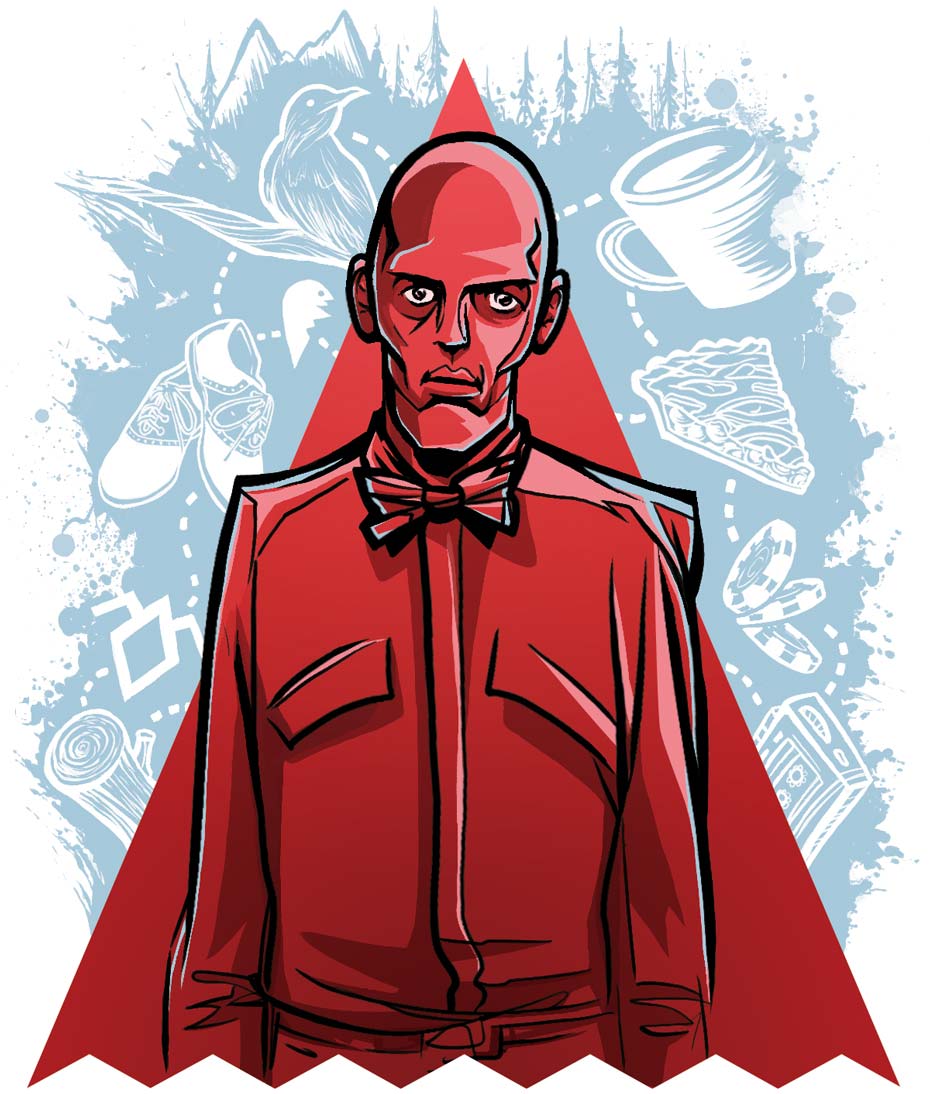RETURN TO TWIN PEAKS


Last month, lovers of metaphysical police procedurals rejoiced when David Lynch and Mark Frost announced that their show Twin Peaks would return to television with a nine episode series in 2016. For months Lynch and Frost teased fans with cryptic tweets, and when finally announced (via Twitter of course), cult television fandom let out a collective exaltation. The announcement dovetails nicely with a scene from the original series in which a spectral Laura Palmer, speaking backwards in the ominous Black Lodge, tells the erstwhile Agent Cooper, “I will see you again in 25 years.” Which is a particularly well-placed easter egg, I’d say.
Twin Peaks, while somewhat heady and often times dense, is an incredibly important part of contemporary television history. The construction of the narrative, unreliable narrators, and impeccable production–not to mention Angelo Badalamenti’s melodramatic score–helped usher in the paradigm shift in television programming that has occurred over those 25 years. We would not have a True Detective if Twin Peaks had not set the tone. With Lynch and Frost producing, writing, and directing this new incarnation of Twin Peaks, it should not only fit in well with the landscape it helped to create, but I cannot help but imagine it will break new television ground once again. Luckily it was picked up by Showtime, meaning the undercurrent of dark adult themes will fit in quite nicely, and may give Lynch and Frost even more freedom than they had in the original run. It seems a very ’90s phenomena that a surreal, auteur-driven soap opera/murder mystery would dominate the pop culture conversation, but at the time it defied any convention of what audiences expected from television. Today’s audiences are seven years past the most popular show on cable, The Sopranos, featuring all manner of challenging, experimental scenes. Twin Peaks began in the days where shows were either nine season powerhouses or two and a half season failures with little room in between. Success, for network and cable shows, is a much more nebulous proposition these days.
Such a sensibility could have helped Twin Peaks in its initial run. Lynch and Frost originally planned for the show to transcend the central murder. “Who killed Laura Palmer?” was the gateway to the world of Twin Peaks, but the creators envisioned a broader plot that encompassed the entire town’s denizens and their secrets. Eventually, the central murder would exist in the background, a centralizing event but not the focus.
The network had other ideas. With an unexpected hit on their hands, pressure mounted on Lynch to solve the central mystery, which he eventually did halfway through season 2. I still remember watching it, a terrified ten-year-old, sitting on the floor at a cousin’s home in the Los Angeles hills while the rain pounded outside. Maybe I imagined the rain, but that was the hold the atmosphere of Twin Peaks had on me.
The revelation of the killer and his bringing to justice made for riveting television, but the aftermath led to a severe ratings drop. When people refer to the much derided “second season,” what they mean are these latter episodes. Just as Lynch thought, without the Laura Palmer mystery, the show lost its ballast. Characters began to slip into absurdity and self-parody. Some plots, such as Nadine’s super strength, have a loopy, nonsensical humor to them if you’re willing to have an open mind. Others, like James’s stint as a rich woman’s boy toy, fall into the soap opera cliches that Twin Peaks was parodying at first. The show found its footing for its considerably dark ending, but in general it was considered a disappointment to anyone outside of the hardcore Lynch admirers.
Those fans, along with the kids like myself who grew up cowering away from the strange, compelling show, have kept the hype alive with conventions and DVD marathons. The prospect of a reboot could not come at a better time. Lynch has not made a film for eight years (it will be a decade when the new series premieres). Contemporary television audiences have become primed for the next tenebrous, dreamlike show that will blow their minds as evidenced by the recent hype over True Detective and Hannibal. The rise of the weekly television blogging recap industrial complex is well suited to a layered mystery like Twin Peaks, a classic “water cooler” show if there ever was one. While the prospect of rebooting things, especially early-’90s properties which are getting more than they’re due at the moment, new material from Lynch is always welcome if you’re a fan. With over a year production time and a prestigious cable television budget, there’s enough for Lynch and Frost to craft a quality run. While some of the original actors have passed away (RIP, Jack Nance) and others have reached late middle age, there’s no reason the story of Agent Cooper and Audrey and James and Killer Bob and the Log Lady and the Owls Who Aren’t What They Seem can’t pick up where it left off. »
– Jacob Schraer



